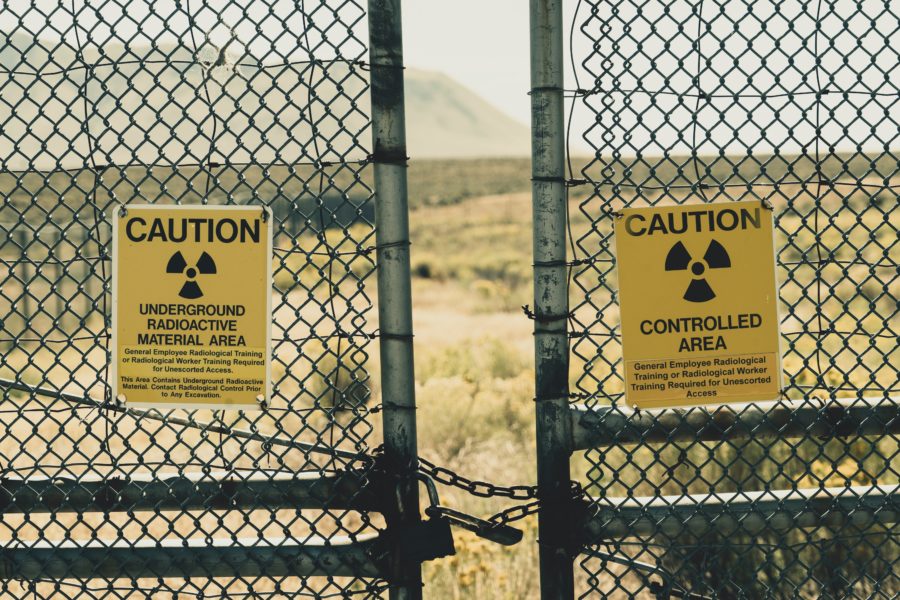
Since the Biden administration assumed office, the nuclear talks with Iran have gone nowhere. Six rounds of negotiations have been concluded with no results. In contrast, two other issues have gone too far: the Biden administration’s appeasement policies towards the Iranian regime, and the advancement of the mullahs’ nuclear program.
When the Biden administration took office, it announced that it would curb Iran’s nuclear program by returning to the 2015 nuclear deal — known as the Joint Comprehensive Plan of Action (JCPOA), which by the way Iran never signed — and by subsequently lifting sanctions against the Iranian government.
Apparently desperate to revive the nuclear pact, the Biden administration at once began appeasing the ruling clerics of Iran. The first concession was delivered when the administration changed the previous administration’s policy of maximum pressure toward Iran’s proxy militia group, the Houthis. Even as the evidence — including a report by the United Nations — showed that the Iranian regime was delivering sophisticated weapons to the Houthis in Yemen, the Biden administration suspended some of the sanctions against terrorism that the previous administration had imposed on the Houthis.
Soon after, the Biden administration revoked the designation of Yemen’s Houthis as a terrorist group. In addition, in June 2021, the Biden administration lifted sanctions on three former Iranian officials and several energy companies. Then, in a blow to the Iranian people and advocates of democracy and human rights — a few days after the Iranian regime handpicked a mass murderer to be its next president — the Biden administration announced that it was also considering lifting sanctions against Iran’s Supreme Leader Ayatollah Ali Khamenei.
From the perspective of Iran’s mullahs, Biden’s desperate efforts to resurrect the nuclear deal manifested his weak leadership and therefore a delectable opportunity for Tehran to buy time, get more concessions, advance its nuclear program and become a nuclear state.
Notwithstanding all these policies of incentives and appeasements, Iran’s mullahs continued to make excuses seemingly to drag out the nuclear talks. One of the latest overtures was that the world powers ought to wait until Iran’s newly elected president, Ebrahim Raisi, took office before resuming the nuclear talks.
By now, Raisi has been president of Iran for more than a month but there has not been the slightest effort by the Islamic Republic to restart any talks; in fact, all the while, the regime appears to have accelerated its enrichment of uranium to weapons-grade. This escalation has even caused concerns among some European leaders and has, surprisingly, led the EU to pressure Tehran immediately to return to the negotiating table. “We vehemently ask Iran to return to the negotiating table constructively and as soon as possible. We are ready to do so, but the time window won’t be open indefinitely” a ministry spokesperson from Germany warned.
After stating that they would resume talks when Raisi assumed office, Iran’s leaders are now saying that they are not likely to restart the nuclear negotiations for another 2-3 months. “the… government considers a real negotiation is a negotiation that produces palpable results allowing the rights of the Iranian nation to be guaranteed,” Foreign Minister Hossein Amir-Abdollahian said during an interview broadcast by Iran’s state television. He added that the nuclear talks are “one of the questions on the foreign policy and government agenda… the other party knows full well that a process of two to three months is required for the new government to establish itself and to start taking decisions.”
As Iran’s nuclear policy, however, is not set by the president or its foreign minister, this declaration sounded like just another excuse by the regime to buy time and advance enrichment. It is, of course, Iran’s Supreme Leader Ayatollah Ali Khamenei who enjoys the final say in Iran’s nuclear and foreign policy issues.
At the moment, the Iranian regime is reportedly 8-10 weeks away from obtaining the weapons-grade materials necessary for a nuclear weapon. “Iran has violated all of the guidelines set in the JCPOA and is only around 10 weeks away from acquiring weapons-grade materials necessary for a nuclear weapon,” Israeli Defense Minister Benny Gantz told ambassadors from countries on the United Nations Security Council during a briefing at the Israeli Foreign Ministry in Jerusalem on August 4, 2021. “Now is the time for deeds – words are not enough. It is time for diplomatic, economic and even military deeds, otherwise the attacks will continue.”
Once again it seems that the mullahs of Iran are masterfully playing the Biden administration and the EU by stalling the nuclear talks, buying time to get more concessions, and accelerating their enrichment of uranium and nuclear program to reach a weapons-grade nuclear breakout.






Recent Comments